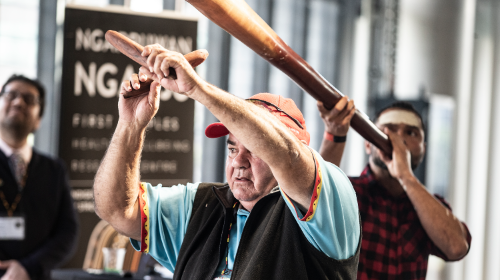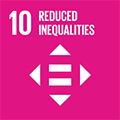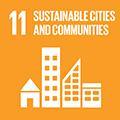A Place Based Model for Community Led Solutions to complex health and social issues
Australian Research Council
May 2019 – June 2022
Background
This project explores the ways in which Aboriginal Community Controlled Organisations (ACCOs) contribute to Aboriginal health and wellbeing.
Strongly connected to place, ACCOs have developed unique approaches, partnerships, programs, forms of community engagement and models of service delivery. They operate within a holistic Aboriginal cultural framework or set of principles and offer pragmatic and flexible models of delivery. Their programs access, engage with, deliver Aboriginal services, and provide leadership and capacity building opportunities, all of which are critically important to local Aboriginal communities. However there has been a lack of systematic research, evaluation or understanding of the vital role of ACCOs and this often renders them invisible or insignificant and jeopardises their survival in a competitive funding environment. Few of the innovative models that operate within ACCOs have been theoretically considered, documented or evaluated. This study addresses this knowledge gap and consequently optimises the long term and sustainable impacts of ACCOs on Aboriginal health and wellbeing
This project involves the Aboriginal led investigator team working in partnership with ACCOs across south eastern New South Wales (NSW). We apply a decolonising lens to better understand how Aboriginal organisations successfully operate within, and enable, key networks across social and community contexts; and investigate how, why and under what circumstances, community led programs are effective.
The main aim of the project is to develop an Aboriginal place based model of service delivery, and to share and transfer learnings to locations in Western Australia and Queensland. The study’s research aims will be achieved using a four phase design: Phase one will describe the policy environment; Phase two will use regional case studies to understand and contextualise Aboriginal community controlled approaches; Phase three will co-design a strategy to support the ACCO model; Phase four will translate the learnings from the south-eastern NSW to other locations within Australia.
What we did
During 2019 we conducted three literature reviews. A scoping review of the literature on ACCOs was undertaken determine the number, nature and scope of exiting peer-reviewed literature on ACCOs. In a separate review we identified literature around Aboriginal conceptions of place in relation to health and are conducting a narrative analysis of the results. Additionally we have reviewed how ‘place-based’ is understood and applied by government in their policies, planning and programs of activity.
Ethical approval was obtained from the Aboriginal Health and Medical Research Council of NSW to conduct phases one and two of the project. For phase one we have identified and have commenced a series of semi-structured interviews with key policy stakeholders from regional, state and Commonwealth Government. Work on the regional case studies for phase two commenced in 2020.





